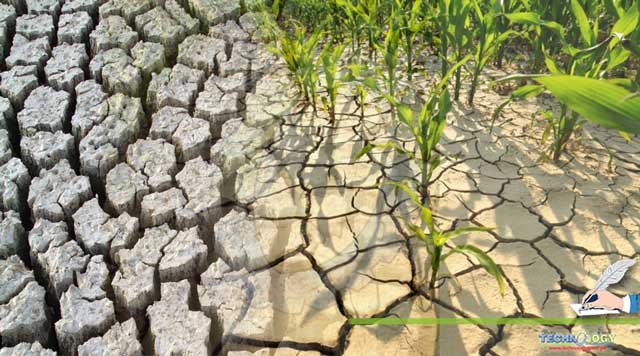Climate change has, global, community, regional and national effects, it has emerged as a major challenge to help various aspects of national security. These range from the impact of internal stability to various aspects of human security, with each warrant being specific to the response to a broad political concept.

By Jebran Ali
Pakistan is a country that is indexed highly sensitive and has different impacts, as seen in extreme climate events. In 2012, the Ministry of Climate Change prepares and national policies aimed at making Pakistan a climate-resilient country, and it is described in various policy areas, responses. After five years, respectively, evaluate the contribution to the policy, and at the same time, their, taking into account current trends. At the same time, at least consistently implement various national and international initiatives to raise awareness of climate change. This document aims to contribute to the analysis of the impact of climate change on various aspects of national security, and to suggest a way forward for Pakistan.
Environment and climate change are inextricably linked to sustainable development. Pakistan, we need to make significant progress in protecting the environment. Water scarcity is increasing, soils are declining, crop yields are declining, and climate change is exacerbating this danger. The risk of natural disasters, exacerbated by climate change and economic shocks, needs to be supplemented by the existing system. Climate change is a potential “threat” to Pakistan’s national security, because Pakistan has a very high level of climate risk and vulnerability assessment. Over the past few years, there have been changes in the hydrological cycle, for example.
“Climate change is not only an evolution of problems, but also an opportunity for development. To answer the challenge, and the place the Department of Climate Change may have worked, the National Climate Change Policy (NCCP), this was approved by the Federal Government, in September 2012. As a result, the National Climate Change Policy is expected to be implemented in 2013. In addition, the overall goal of climate policy is to ensure that climate change is taken into account by the main activities in the economic and socially vulnerable sectors of the economy, while at the same time to steer the country towards sustainable climate change, designing and implementing architecture, all elements that are feasible and feasible. Adaptation, mitigation and technology transfer, main areas of political activity. Funding provision, capacity building, and awareness rising are other key areas that require attention.
In this environment of uncertainty and unpredictability, climate change presents a complex issue for policymakers who attempt to make decisions based on the most historical and popular denominator. Resources were still a problem. In the field of international security and environmental protection, large powers are being ordered, in response to threats and pressures from climate change. If we seize this opportunity, that is, we can turn climate change, new economic opportunities to promote sustainable development and encourage new forms of cleaner technologies, according to the Ministry of Industry and Employment. At this stage, we need a partnership between the public and private sectors, as well as civil society, to achieve a paradigm shift, not just development policies. And most importantly, we need a national solidarity Process based on genuine partnership, both at the national and international levels. But this danger can be a multiplier, testing the ability of the government that made the bold decision was to prepare the people to effectively deal with the negative effects of climate change on national security.